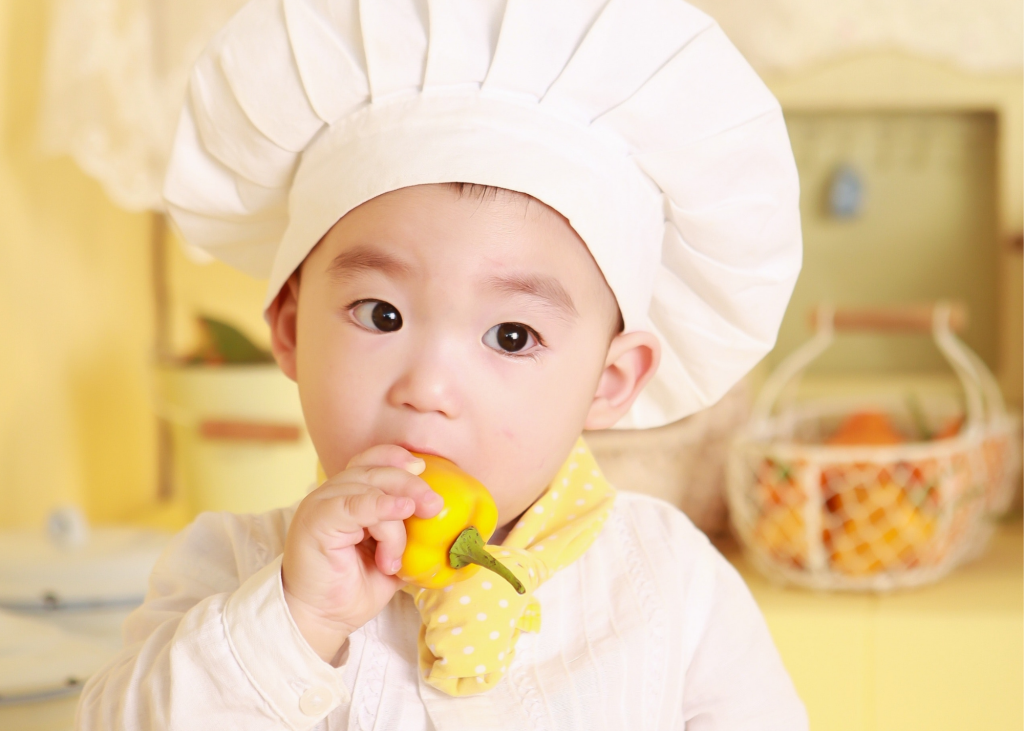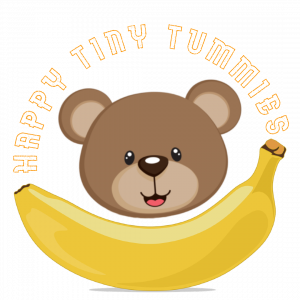As you begin to introduce solid foods to your baby around 6 months, you may find yourself wondering, which foods should I avoid giving to my baby? When is it safe for him or her to have these foods? I personally found it easier to stick to a whole foods diet for the whole family. So that introducing solid foods to baby is also a whole family approach as appose to baby being the only one eating natural foods. Your baby will only be familiar with what you choose to introduce them too. They don’t need to have salt or extra sugar added to their food for flavour; natural food on its own is very flavoursome to a baby’s taste buds. Remember when you cook food for your baby that it is not your taste buds that you are catering for.
If your baby has food allergies to the foods that I am going to talk about, then you should follow the advice and recommendations from your doctor as to when it is safe for you to start introducing these foods to your baby. Most of the ingredients or food listed below are not advisable for your baby because of the harmful effect they will present and later on in their lives.
Please note – this information should not be taken as medical advice, these are guidelines and with any concerns you should always discuss with your Doctor first.

1. Dairy produce (Cows, goat, sheep, )
Avoid giving this to your baby as a drink before the age of 12 – 18 months. If your baby is not breastfed then continue with the baby formula until your baby is 12 -18 months. Your baby cannot digest the large amount of protein in these fresh milks, and in most cases will irritate the lining of the stomach and intestines. From 12 – 18 months your baby can be offered fresh organic pasteurised cows, goat’s milk as a drink.
Cheese tends to be high in salt especially the mature ranges of cheese. Although Department of health does suggest around 6 months the introduction of dairy products such cheese, cooked milk recipes and pasteurised yoghurts. Avoid soft cheeses, those that are mould-ripened such as blue cheeses which may contain harmful bacteria for your baby. Some cheeses are not suitable for young children’s digestion. Dairy products are known for causing constipation, gas and a lot of mucus in your system. So I would recommend not offering every day and one serving of yoghurt or cheese for the day is fine. (One small pot of yoghurt is a serving depending on size and two dice size of cheese is enough for the day. As your baby gets older the amount of dairy products given daily should not exceed the amount of other natural food groups.
The same applies to Soya milk and soya food products; these are not suitable to give to your baby before 12-18 months.

2. Honey or sugar
Honey -Your baby’s system cannot cope with digesting honey this includes, raw honey, or mass produced. Baby is also at risk of getting infant botulism (bacterial infection), this is caused by Clostridium botulinum spores in the honey and they produce neurotoxins in the body. Your baby should recover with treatment.
Sugar is not necessary for your baby, not only are you setting your baby up for a life time of dental carries; your baby will also be at risk of developing diabetes, prone to becoming overweight which could lead to obesity and a fussy eater. Avoid buying processed foods often or pre – prepared meals for your baby as they may contain sugar. This may be listed in the ingredients by another scientific name such as galactose, maltose, fructose etc. I will post a blog on a separate topic on reading food labels and key words to look out for!!
Be aware of baby drinks and flavoured water as they too contain sugar and some will also use artificial sweeteners which gives the impression to be sugar free. The only sugar suitable for your baby before 12 months is the natural sugar from the fruit or vegetables. Or the lactose which is the natural sugar found in milk.
Tinned fruit in syrup or juice, and dried fruit;
Fruit is great in general but once it is canned in syrup or juice the fruit is no longer as nutritious and healthy but rather is a sugary fruit. I talked earlier about the effects of sugar on your baby. So when choosing fruit for your baby it is best to stick with fresh produce and not canned, though canned is convenient and has a longer shelf life, it is best for your baby to avoid beyond 12 months .

3.Salt
Salt for your baby is a big NO their tiny little kidneys cannot cope with it resulting in kidney failure and you don’t want your child to have high blood pressure. The other thing is dehydration and the urge to want to drink lots of water ……. Also your baby is likely to be a fussy eater and having more of a liking for those salty flavours. Be aware as many of the processed foods are high in salt. There is no need to add salt to your baby’s food for flavouring. Delay beyond 12 months, your baby does not need to be familiar with this flavour enhancer.

4. Raw egg/ lightly cooked eggs
Though eggs are now recommended from the age of 6 months as long as they are cooked well and preferably organic. Eggs are one of the high allergic foods so be aware of products or recipes that contain raw or lightly cooked eggs. If you have no family history of allergies especially to eggs then a parent has the option of introducing well cooked eggs before baby is 12 months.

5. Saturated fats
Fats are essential in your child’s diet. It’s important to be able to balance the amount of Tran’s fats also known as saturated fats with polyunsaturated fats and monounsaturated fats. To keep it simple if the majority of the food you offer your baby is already packaged, flavoured and pre-cooked the chances are that it is mostly saturated fat and very little monosaturated fat or poly saturated fat. Foods and snacks such as sausages, deli meats like ham, fried potato snacks, fried potatoes (chips), pies, pastry’s should not be offered to your baby before 12 months or longer if you do not eat those foods. The problem is that they are often loaded with other things such as salt, sugar, additives and preservatives. This type of fat is harder to break down and will contribute to excessive weight gain, fussy eating tendencies and other health related problems later on in life.
Saturated fat from fresh organic meat blended in a soup or part of a stew, casserole or sauce is acceptable to offer to your baby. Saturated fat from fresh organic pasteurized milk and mild cheese as part of a recipe meal is also acceptable. But saturated fats (also known as Trans fats) that are from processed foods are a No No.

6. Raw Tomatoes
Uncooked tomatoes are typically very acidic and would be very harsh on an immature digestive system. Tinned tomatoes are just as bad and have a high acidic taste to them. Fresh cooked tomatoes are ok but offered in moderation. Also the skin of the tomatoes should be peeled before chopping and cooking.

7. Strawberries
It’s unfortunate but strawberries are one of the foods that are most commonly known for an allergic reaction. This is often the case if your baby already has existing allergies or if there is family history of allergy to strawberries. Strawberries if not grown organically are found to be high in pesticide residues so do try and only offer your child organic.
The first recommendation is to make sure that the strawberries are very ripe for your baby’s digestive system, organically grown, washed very well. Commercial baby food that has strawberries in them have usually been cooked at a high heat which will have killed the protein that most babies cannot digest properly and causes the allergy response. Common symptoms are usually rash, hives or pain in the tummy. Other berries such as blueberries and cranberries are not included in this. Some parents may choose to wait 12 months before offering any of the berry family fruits.

8. Gluten
These include foods such as wheat bread, rye bread, wheat pasta, cereals, oats and crackers. Whole grains such as rice, quinoa, amaranth and millet are great substitutes if you want to offer your baby bread, crackers, porridge and pasta. These generally are kinder to your baby’s tummy and easier to digest than wheat which contains gluten. As your baby gets older 18 months or beyond, you can offer more wheat based foods if you wish. Current recommendations are that you may introduce wheat based foods high in gluten from 6/7 months. Research suggests introducing foods with gluten when your baby is between 4 and 6 months. The reasoning behind it is that if introduced early it will minimise risk of allergy.

9. Nuts and Seeds
They are highly nutritious packed with great source of fats and protein making them calorie dense in a small portion. These are also high on the list of allergic foods especially peanuts, cashews, almonds, Brazil nuts, sesame seeds and flaxseeds. Initially they were not to be introduced before 12 months but now research and recommendations are suggesting introducing peanuts in the form of nut butter at 6months or before 12 months. The rationale from research is that earlier exposure to peanuts can be protective when it comes to allergies.
In their whole form they are a choking hazard and it’s recommended to avoid until your child is five years. This does not mean that they cannot be introduced between 6 months and 4 years in other ways such as nut butters which can be spread on toast, added to porridge, smoothies, pancakes and even soups.
Be cautious if there is history of allergy in the family or if baby has eczema or other existing food allergies. The choice is yours if you wish to try at 6months after you have examined your family history or you would prefer to try at 12 months.
I hope you enjoyed reading this article and I look forward to your comments.
By Lebohang Zwane
Let me know what you thought by subscribing



Hi there, I discovered your site by means of Google while searching for a related matter, your web site came up, it seems great.
I have bookmarked it in my google bookmarks.
Hello there, just was alert to your weblog via Google, and located that it’s truly informative.
I’m going to watch out for brussels. I’ll be grateful
in the event you proceed this in future. A lot of other folks
might be benefited out of your writing. Cheers!
Hi Twicsy,
Thank you for your comment. Very soon you will be able to subscribe to our newsletter which I hope you will enjoy reading. The subscription button on the website homepage will be active soon.
All the best
Lebo
Heya i’m for the first time here. I came across this board and I find It really
useful & it helped me out a lot. I hope to give something back and help others like you aided me.